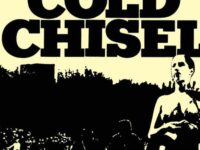Jimmy Barnes is not merely a singer, he’s an Australian icon. But he actually started life in the slums of Glasgow, Scotland, before his family emigrated to Adelaide, Australia when Barnes was about 5. He told the whole story in the autobiographies Working Class Boy and Working Class Man, reading both himself for the audiobook releases.
I’d encourage listening rather than reading, as Barnes’ personality really comes through – not only in his writing but also in his vocal approach. His accent shifts between his Scottish roots and his Aussie upbringing: The Scot comes out more in Working Class Boy, as he shares his early life (up to about age 17) and then shifts to the more traditional Australian accent with Working Class Man – which picks up right where Working Class Boy left off.
If Barnes’ life could be summed up in mere words, “frenetic” and “loud” would come to mind. With a drug and alcohol intake for much of his life and career that would even give the likes of Keith Richards pause, this story is an intriguing one.
It could easily be argued that Barnes rather poor upbringing gave him the cred that caused his audiences to relate to him. He was one of them who had made good. He sang the soundtrack of Australia in the ’70s and ’80s. Many of his songs and those of his band Cold Chisel are no longer theirs: They are Australian anthems.
As he regales tales of his father, James Swan one can feel the thick tension of the Swan households — first in Scotland and later in Australia. You can almost smell the whiskey-soaked breath of Barnes’ father, so vivid is the writing. Working Class Boy later focuses on Barnes’ adoptive father, Reg Barnes, and the love and respect Barnes had for Reg is made clear.
He was a man who had unselfishly married Barnes’ mother and provided a home for Barnes and his siblings. So, making the decision to take the Barnes name was a relatively easy one for Barnes and all but one of his siblings – Barnes’ older brother, John Swan, an exceptional singer in his own right.
As Barnes takes the listener through his original tenure with Cold Chisel, they cut their teeth as a covers band while waiting for keyboardist/vocalist Don Walker to complete his education. They then began performing brilliant songs written by Walker, inspiring Barnes and his bandmates to start writing songs as well while developing a name for themselves on the Australian pub circuit. Over time, they gradually shifted to completely original music, as opposed to the covers they’d started with.
One can sense the familial ties that Barnes felt with bandmates — Don Walker, Ian Moss, Steven Prestwich, and Phil Smalls – as he reads the audiobooks, and the chemistry they had as Cold Chisel. Barnes then takes the listener through his solo career, from the highs of his smash hit “Working Class Man” to the lows of his bankruptcy and two-year exile from Australia in Aix-en-Provence, France and his inevitable return to Australia.
Barnes later reunited with his Cold Chisel bandmates in the late ’90s Along the way, he used cocaine and alcohol to fuel his way through a life that was in constant flight from what one would consider a rather strong, almost debilitating case of “imposter syndrome.” He never believing he was worthy enough, or that his success would last — despite how much he’d already experienced.
Watching old videos of Cold Chisel, Barnes is full of piss, sweat, vinegar and pure coke-fueled energy with a microphone in one hand and bottle of vodka in the other. He sings every note as if it were his last, with the volume cranked so loud it pinned the audience to the walls.
These books are his story — and what a story they are. But don’t take my word for it: Listen for yourself.
- The Most Surprising Moment on Alan Parsons Project’s ‘Eve’ - August 27, 2024
- Why the Audiobook Versions of Jimmy Barnes’ Autobiographies Are Definitive - June 24, 2024
- Kahvas Jute – ‘Wide Open’ (1970): Antipodean April - April 28, 2024


